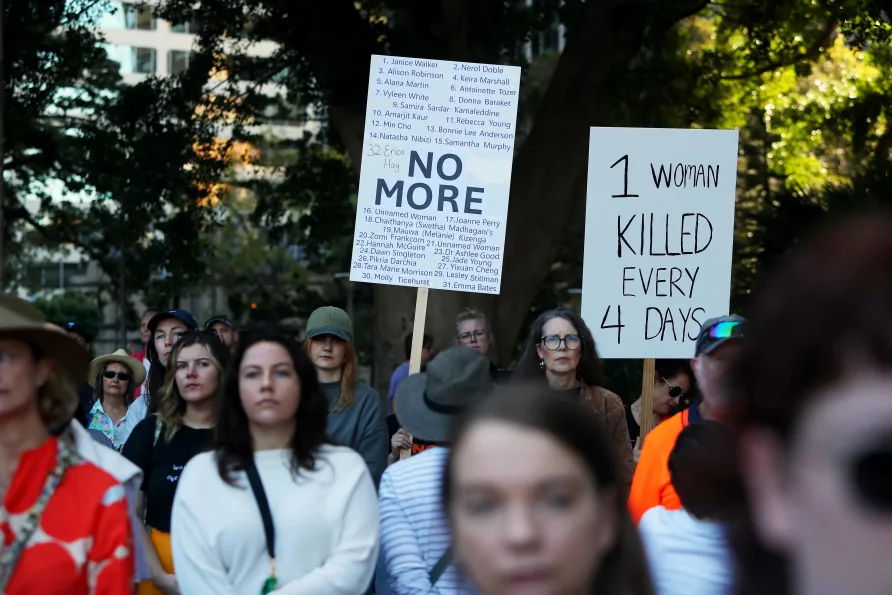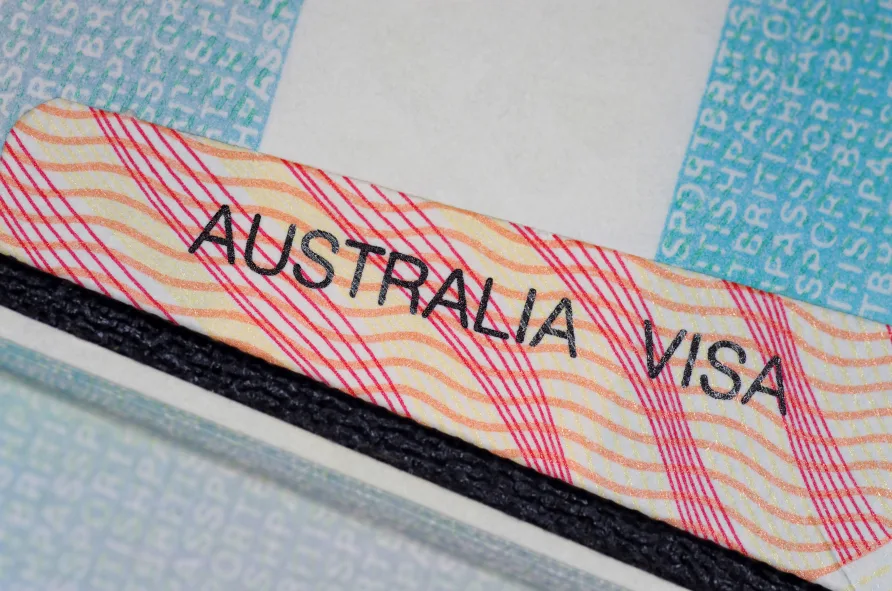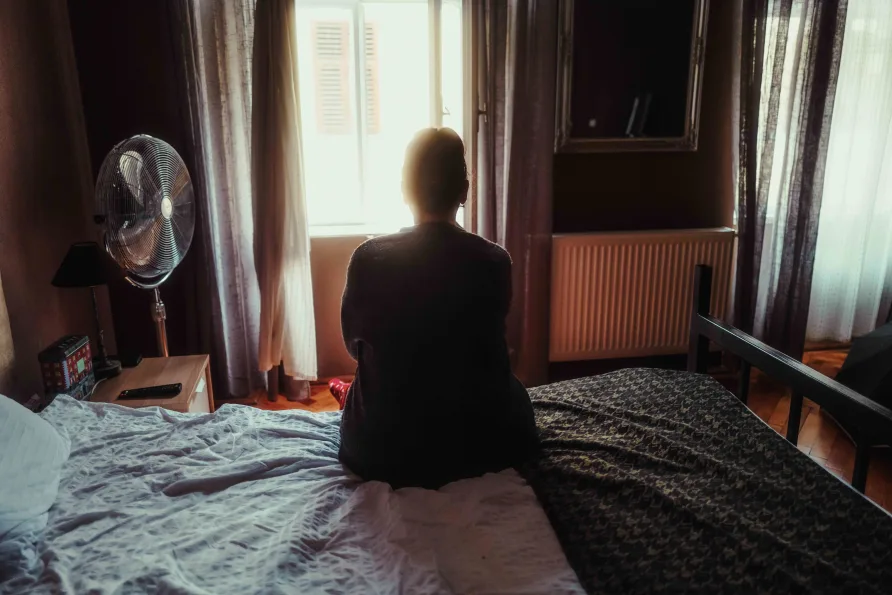
Women on temporary visas remain vulnerable to domestic and family violence

While the government is committed to urgently responding to the scale of men’s violence against women, there remains inaction on reforming our systems
Published 13 May 2024
This year, 27 Australian women have been killed in acts of violence, predominantly by men known to them as current or former partners. This is close to double the number from the same period in 2023.
In response to the issue gender-based violence, Australia’s Prime Minister, Anthony Albanese convened an emergency meeting of national cabinet – which includes the premiers of states and territories, as well as the federal leadership.
Those eligible, regardless of visa status or gender, will be able to access up to $5000 in financial support along with referral services, risk assessments and safety planning.
— Amanda Rishworth MP (@AmandaRishworth) May 1, 2024
This emergency meeting resulted in a $AU925m package to help victims of violence escape abusive relationships.
As part of this announcement, Australia’s Minister for Social Services, Amanda Rishworth, acknowledged that anyone experiencing domestic and family violence (DFV) should be able to access the emergency payment, under the government’s Leaving Violence Program.
She specifically noted that this should be the case ‘regardless of visa status’.

This marks a significant shift for visa status to be recognised as a barrier to support. But it is not enough.
EVERYONE DESERVES PROTECTION
For more than a decade, advocates across Australia have again and again raised the importance of recognising that for people on temporary visas, domestic and family violence is sustained by the migration system.
Temporary visa holders are not able to access emergency or long-term housing support, welfare support, childcare subsidies and other critical assistance at all (or without a lengthy delay) because of their visa status.
In the only national study focused on migrant and refugee women’s experiences of domestic and family violence, our team found that temporary visa holders are at higher risk of domestic and family violence.

These women are more likely to experience violence and abuse that is specifically focussed on leveraging their temporary visa status.
What does this mean in practice? It means (most often) their husbands and family-in-law threaten them with deportation to control where they go, what they do, when or if they leave the house.
It means preventing them from accessing English-language classes, refusing to allow them to speak to family in their country of origin, or denying them access to medical care.

Health & Medicine
Domestic violence linked to alcohol use is a national emergency
It means threatening women that they will be denied custody of their children. It means threatening to return women to their countries of origin to continue to abuse and control them.
It means men lying to them about the visa they applied for, so they believe they are on a partner visa – only to discover they have entered Australia on a visitor visa.
These situations are complex, diverse and largely sidelined in the conversations around the complexity of domestic and family violence.
SYSTEMIC PROBLEMS MEANS WOMEN AREN’T SAFE
There are a myriad of ways that migration status intersects with domestic and family violence.
In 2022, the National Advocacy Group for Women on Temporary Visas Experiencing Violence released its second Blueprint for Reform which details the specific changes required to ensure these women are safe.

The Advocacy Group represents more than 60 Australia organisations and advocates who have detailed understanding of the systemic problems that continue to mean temporary visa holders are vulnerable to violence and abuse.
This group has called for changes to the migration system for women on temporary visas who are experiencing domestic and family violence.
The main ask is to create a specific two-to-three-year visa that makes anyone who cannot access a pathway to permanent residency eligible for social security (including Medicare and childcare subsidies), social and public housing and other supports.

Health & Medicine
Poverty is trapping women in abusive relationships
In 2023, the Minister for Immigration, Citizenship and Multicultural Affairs, Andrew Giles, and the Department of Home Affairs conducted a series of consultations to consider reforms of the migration system to improve women’s safety. Invited stakeholders included many members of the National Advocacy group.
Since then, there has been no further communication or public information about those next steps.
During this time of inaction, hundreds of women on temporary visas have continued to experience domestic and family violence in Australia. Many have no safety net and extremely limited access to support.
ACCOUNTABILITY AND TRANSPARENCY
In 2022, the National Plan was launched, followed closely by the First Action Plan.
The Action Plan states:
“Systems need to improve responses to victim-survivors from diverse backgrounds. Migrant and refugee women can encounter systematic barriers in the justice system that directly impact their ability to obtain justice, including language barriers, access to language services, and distrust of the legal system due to temporary visa status.”

It’s troubling that the plan still doesn’t make a sincere commitment to the ways in which the migration system specifically plays a role in sustaining violence.
It is entirely possible for regulations and visa conditions to change in a way that would immediately allow women to access the support they need to secure their and their children’s safety.
Overwhelmingly, leaders who are responsible for taking charge of the national response to ending violence against women remain silent on how the migration system undermines women’s safety.

Health & Medicine
Family violence in immigrant and refugee communities
We will not achieve the commitments to ending violence if system-wide changes are not at the forefront of our minds.
Advocates from every area of expertise – those with lived experience, specialist frontline workers, researchers, peak bodies – have made consistently clear that we want and expect more.
Australia’s mourning of the women whose deaths were preventable has been a catalyst for national action and conversation. But many women continue to live in fear of their safety.
Given the work that’s gone into the National Plan, demanding accountability and transparency from state, territory and Commonwealth governments is reasonable. So too is the call for recognising that we need a range of strategies implemented simultaneously.

Dr Anna Cody, the Sex Discrimination Commissioner, has clearly outlined the importance of not having a ‘one-size-fits-all’ approach to women’s safety.
Vanessa Turnbull-Roberts, the Commissioner for Aboriginal and Torres Strait Islander Children and Young People, has written powerfully about recognising the role of the state in enacting and sustaining violence against Aboriginal women and children.
This all tells us that men’s violence against women requires system change in many areas. This includes the migration system which plays a key role in creating and sustaining conditions where many women and their children are not safe.
And it’s this systemic change that must begin if the commitment to ending violence against women within a generation is a genuine one.
Picture: Getty Images
